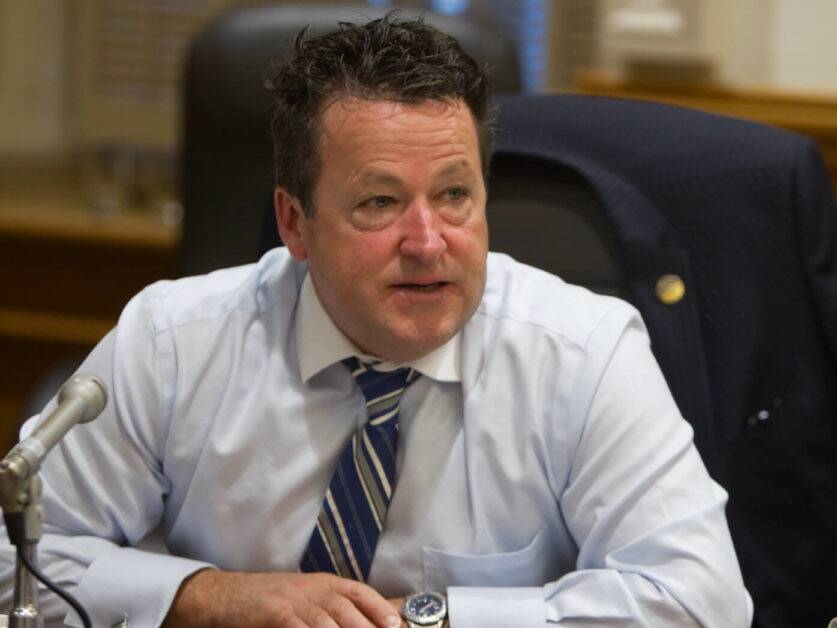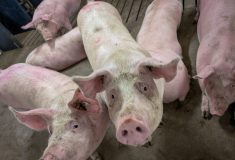EDMONTON — The Wildrose Alliance party says it would disband the Alberta Livestock and Meat Agency if it won the upcoming provincial election.
The agency was controversial when it was incorporated in 2009. Some producers thought it was an advanced idea to promote and support the meat industry at home and overseas, while others considered it a government boondoggle with an oversized budget.
“We have said in our alternative budget that we would cancel the Alberta Livestock and Meat Agency,” said party leader Danielle Smith.
“We don’t believe in corporate welfare or direct grants to individual firms and if you look at the kind of money that is flowing through there, you have to stop it now,” she said March 19 when the party released its rural platform.
Read Also

New Quebec ag minister named in shuffle
Farmers in Quebec get a new representative at the provincial cabinet table as Premier Francois Legault names Donald Martel the new minister of agriculture, replacing Andre Lamontagne.
“We don’t believe that is the most effective way to be able to support our producers,” she said.
David Chalack, chair of ALMA since July 2010, is not worried.
“That doesn’t create fear or angst in me at all,” he said in an interview during a board meeting March 20.
He describes the agency as a co-ordinated approach to distributing grant money and supporting new markets for all sectors of the meat business.
ALMA is run by government appointed directors who were selected on the basis of expertise each brings to the table. They are not all Albertans or producers.
The agency does not lobby government but does advise the agriculture minister.
“We don’t set policy, but we try and influence and we give input,” he said.
It has become the go-to place for grant money and tries to avoid duplication, he added.
“We are almost the sole funder for agriculture now,” he said, second only to the federal government.
Chalack said each application is well scrutinized to ensure it meets specific criteria to advance the livestock and meat business.
The ALMA model could become a larger entity working with other provinces, he added.
“Will ALMA grow into a broader national initiative? It could because it brings focus and it brings strategy,” he said.
The agency deals with all meat industries, but beef receives the most support because it is the largest sector. All groups are eligible for help because there are crossover benefits.
“When you are funding, you are looking at outcomes, not sector,” he said.
Board member Cheri Copithorne-Barnes said ALMA expected 200 project applications by the end of March.
ALMA has contracted $84 million, which was leveraged to more than $346 million.
“We are having an impact on the Alberta industry,” she said.
ALMA administers $36 to $40 million a year in grants and is responsible for the oversight of the $22 million legacy fund and another $8.8 million from Growing Forward.
For example, Growing Forward money helped develop improved meat patty businesses for Centennial Foods and Cargill Foods, the sole supplier of patties to McDonald’s Canada. It also helped expand a cheese factory in southern Alberta and provided money to a pet food company that uses cattle and pork byproducts.
“We are more than a government funding agency. We have gone to the next step and created our own strategic applications,” she said.
These are the big picture advancements working on research for feed grain development, genomics and environmental stewardship.
ALMA also administers $25 to $30 million to support value-added market creation as well as research and industry development.
It funded an electronic identification system for the Alberta lamb industry and supported a study on pork pricing formulas.
Grant applications are reviewed by ALMA staff and are sent to one of three technical review committees.
Chief executive officer Gordon Cove reviews applications and can approve projects worth up to $250,000. The programs and services committee decides on requests between $250,000 and $1 million and the board reviews and approves applications worth more than $1 million.
ALMA does not fund salaries, but it will pay for contract positions that are specific to a project.
The provincial auditor general audits the agency each year.















